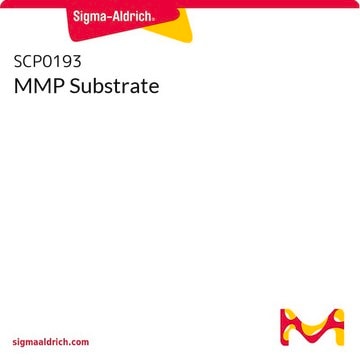M2004
N-Methyl-D-glucamine
99.0-100.5% (titration)
Synonym(s):
1-Deoxy-1-(methylamino)-D-glucitol, Meglumine
Sign Into View Organizational & Contract Pricing
All Photos(4)
About This Item
Empirical Formula (Hill Notation):
C7H17NO5
CAS Number:
Molecular Weight:
195.21
Beilstein:
385906
EC Number:
MDL number:
UNSPSC Code:
12352104
PubChem Substance ID:
NACRES:
NA.22
Recommended Products
Quality Level
Assay
99.0-100.5% (titration)
form
powder
autoignition temp.
~662 °F
mp
129-131.5 °C (lit.)
SMILES string
CNC[C@H](O)[C@@H](O)[C@H](O)[C@H](O)CO
InChI
1S/C7H17NO5/c1-8-2-4(10)6(12)7(13)5(11)3-9/h4-13H,2-3H2,1H3/t4-,5+,6+,7+/m0/s1
InChI key
MBBZMMPHUWSWHV-BDVNFPICSA-N
Looking for similar products? Visit Product Comparison Guide
General description
N-Methyl-D-glucamine, also known as methylglucamine, is an organic compound that belongs to the class of amino sugars. It is commonly used in pharmaceutical and biochemical applications as a resolving and buffering agent. Salts of N-methyl-D-glucamine have also been used for X-ray contrast media and nuclear imaging agents.
Application
N-Methyl-D-glucamine (NMG) can be used as a reactant to prepare water-soluble polymer for the selective removal of arsenic from aqueous water. It is also used in the development of various resins and gels containing NMG to remove different oxyanions.
Storage Class Code
11 - Combustible Solids
WGK
WGK 1
Flash Point(F)
Not applicable
Flash Point(C)
Not applicable
Personal Protective Equipment
dust mask type N95 (US), Eyeshields, Gloves
Choose from one of the most recent versions:
Already Own This Product?
Find documentation for the products that you have recently purchased in the Document Library.
Customers Also Viewed
Philipp Kickingereder et al.
Neuro-oncology, 17(8), 1139-1147 (2015-03-11)
To analyze the relevance of dynamic susceptibility-weighted contrast-enhanced MRI (DSC-MRI) derived relative cerebral blood volume (rCBV) analysis for predicting response to bevacizumab (BEV) in patients with recurrent glioblastoma (rGB). A total of 127 patients diagnosed with rGB receiving either bevacizumab
Vidhya M Ravi et al.
Life science alliance, 2(4) (2019-06-30)
When it comes to the human brain, models that closely mimic in vivo conditions are lacking. Living neuronal tissue is the closest representation of the in vivo human brain outside of a living person. Here, we present a method that
Raphaëlle Renard-Penna et al.
Radiology, 275(2), 458-468 (2015-01-20)
To compare the diagnostic performance of the magnetic resonance (MR) imaging-based Prostate Imaging Reporting and Data System (PI-RADS) and a Likert scale in the detection of prostate cancer in a cohort of patients undergoing initial prostate biopsy. This institutional review
Steven R Breault et al.
AJR. American journal of roentgenology, 200(3), W297-W303 (2013-02-26)
The purpose of this study was to determine the effects of age and fat content on quantitative dynamic contrast-enhanced MRI (DCE-MRI) parameters in the bone marrow of the lumbar spine and pelvis. The interreader reproducibility of this technique will also
Daniel M Sado et al.
Circulation. Cardiovascular imaging, 6(3), 392-398 (2013-04-09)
Anderson-Fabry disease (AFD) is a rare but underdiagnosed intracellular lipid disorder that can cause left ventricular hypertrophy (LVH). Lipid is known to shorten the magnetic resonance imaging parameter T1. We hypothesized that noncontrast T1 mapping by cardiovascular magnetic resonance would
Our team of scientists has experience in all areas of research including Life Science, Material Science, Chemical Synthesis, Chromatography, Analytical and many others.
Contact Technical Service










